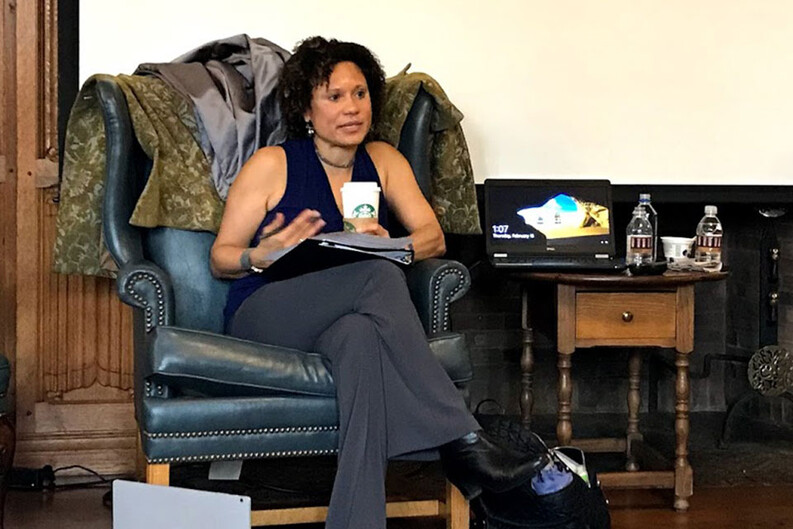Federalism Can Further International Human Rights, Explains Catherine Powell

Catherine Powell, who presented at the Human Rights Workshop on February 15th, is one of a number of scholars who are rethinking federalism. Powell, a Professor of Law at Fordham Law School, rejects the notions that American states and the federal government exist in separate spheres. In her current research, she analyzes how in the U.S., as well as in international politics, law and norms on issues such as immigration and climate change are being shaped from below, as well as above.
Powell began by speaking about the Paris climate accord, which, she said, intended for countries to internalize the norm that they had a collective responsibility to do all they could to stop the effects of climate change. However, she emphasized, it did not impose a one-size-fits-all approach to implementation; rather, the accord encouraged countries to design their own pledges and implementation strategies. To Powell, Trump’s characterization of the Paris climate accord as a prescription that is contrary to American interests and his rejection of the agreement therefore represented “a monumental misunderstanding of what it is.”
As Powell observed, Trump’s attitude has led many mayors and local politicians, entrepreneurs, university presidents, and other local actors to commit to implementing the terms of the Paris climate agreement—and thus, international norms—in their jurisdictions. Powell noted that American state and local jurisdictions are also resisting the Trump administration’s immigration policies by declaring themselves sanctuary cities or refusing to comply with Immigration & Customs Enforcement (ICE)’s requests to detain undocumented immigrants.
Powell explained that in the cases of immigration and climate change, local jurisdictions may not be “motivated by [the] common purpose” of enforcing international agreements in order to uphold human rights; indeed, as Powell pointed out, there are few international agreements on migration. Rather, Powell posited, some local jurisdictions may incorporate provisions from the Paris climate accord to protect their local forests, or may defy the Trump administration’s immigration policies so as to maintain local control over criminal justice.
Moreover, Powell noted, states can pursue policies that differ from federal policy but are contrary to international human rights norms, such as harsh immigration measures passed in Arizona. “There’s always progress and retrenchment,” Powell said. But she maintained that state and local experimentation may still have “something to offer for national and international debate.” Powell concluded that federalism is more than “a lynchpin to democracy.” It also, she said, “has a vital function in advancing international law norms and the fulfillment of those norms.”


